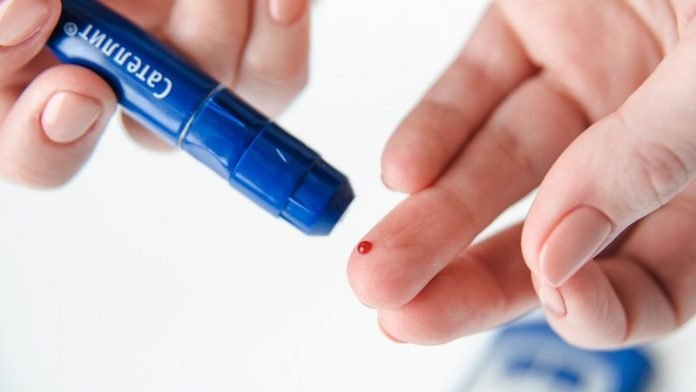
Scientists from the VA Saint Louis Health Care System found the risk of diabetes is increased for people after the COVID-19 infection.
The research is published in The Lancet Diabetes & Endocrinology and was conducted by Yan Xie et al.
In the study, the team examined the risk and burden of diabetes in 181,280 individuals who had a positive COVID-19 test between March 1, 2020, and Sept. 30, 2021, and survived the first 30 days of SARS-CoV-2 infection.
They found that in the postacute phase of the disease, people with COVID-19 had an increased risk for and excess burden of incident diabetes compared with the contemporary control group.
In addition, they had an increased risk and excess burden of using blood sugar drugs.
In analyses that estimated the risk for a composite endpoint of incident diabetes or antihyperglycemic use, the hazard ratio was 1.46 and the excess burden was 18.03 per 1,000 people at 12 months.
There was an increase in a graded manner in the risks and burdens of postacute outcomes based on the severity of COVID-19.
The team says the evidence suggests that diabetes is a facet of the multifaceted long COVID syndrome and that postacute care strategies of people with COVID-19 should include identification and management of diabetes.
Sign up for our newsletter for more information about this topic.
Previous research has found that common drugs for diabetes may reduce the death risk of COVID-19.
In a study from the San Francisco Veterans Affairs Medical Center and published in The BMJ, researchers found a COVID-19 survival benefit linked to the use of an angiotensin-converting enzyme inhibitor (ACE-I), an angiotensin receptor blocker (ARB), or metformin for hospitalized patients.
ACE inhibitors are medications that help relax the veins and arteries to lower blood pressure.
ARBs are used to treat high blood pressure and heart failure. They are also used for chronic kidney disease and prescribed following a heart attack.
Metformin is used to control blood glucose (sugar) levels in people who have type 2 diabetes.
In the study, the team examined patterns of ACE-I, ARB, beta-blocker, metformin, famotidine, and remdesivir use and mortality among 9,532 hospitalized patients with COVID-19 infection.
The researchers found that discontinuation of an ACE-I was linked to a higher risk for death, while the risk for death was reduced in association with initiating or continuous ACE-I use.
Strong links of similar direction and magnitude were seen with ARB and metformin use.
These findings not only support the continuation of ACE-I, ARB, and metformin medication among hospitalized patients with COVID-19 but suggest benefits for initiation in patients with indications for therapy.
The researchers also found evidence consistent with the benefits of the same strategy in patients with COVID-19 who are not hospitalized.
If you care about diabetes, please read studies about how to reverse type 2 diabetes and deadly liver disease, and common drug for diabetes, alcoholism may help treat cancer.
For more information about diabetes, please see recent studies about common drinks that could make type 2 diabetes less deadly, and results showing this common nutrient may be key to better diabetes treatments.
Copyright © 2022 Knowridge Science Report. All rights reserved.



